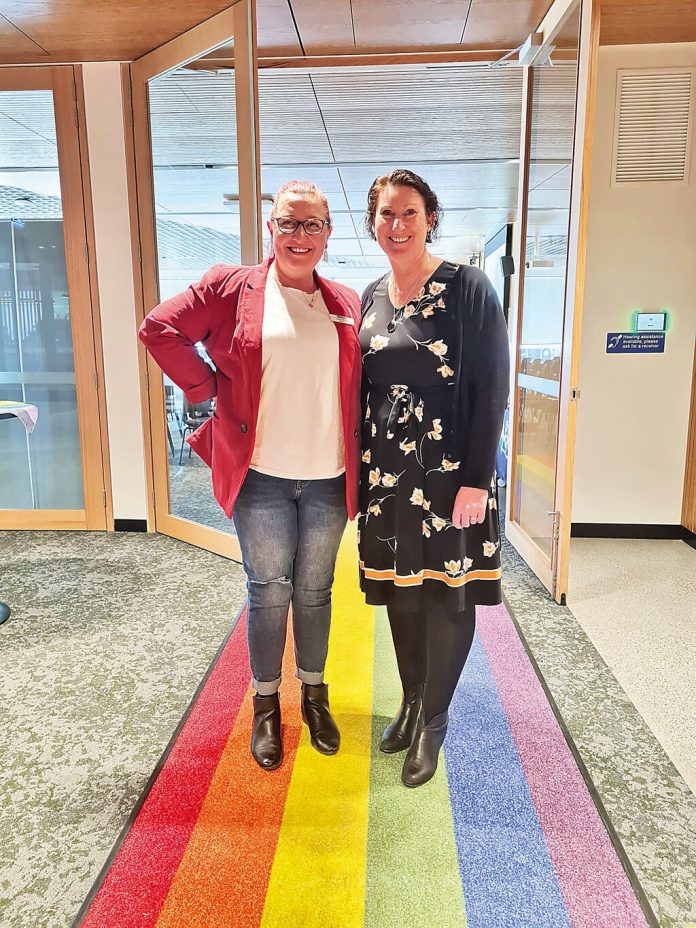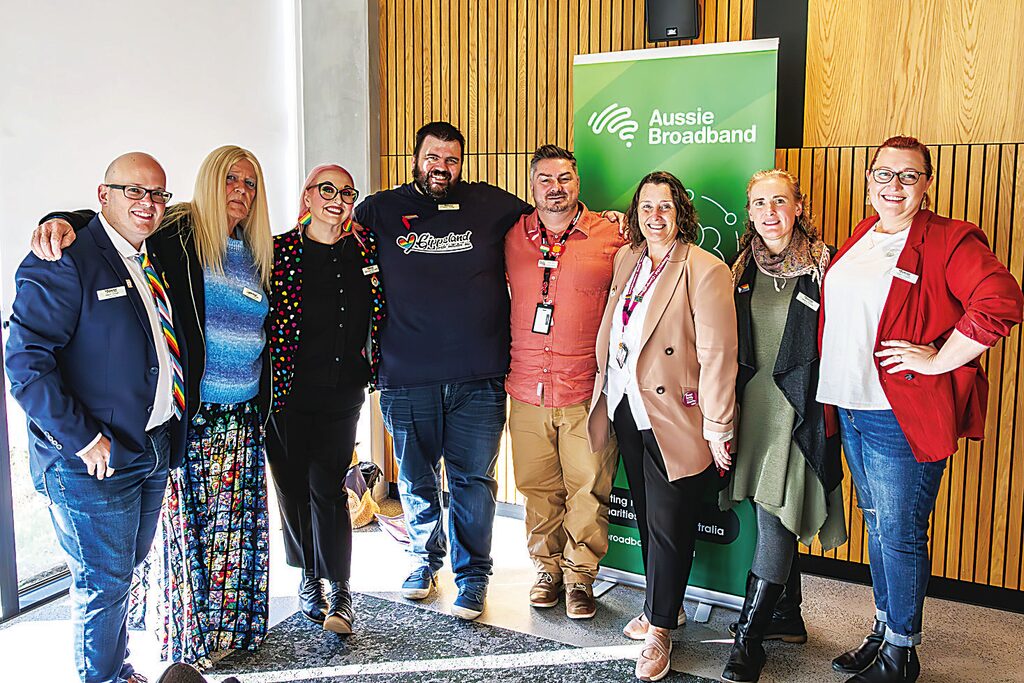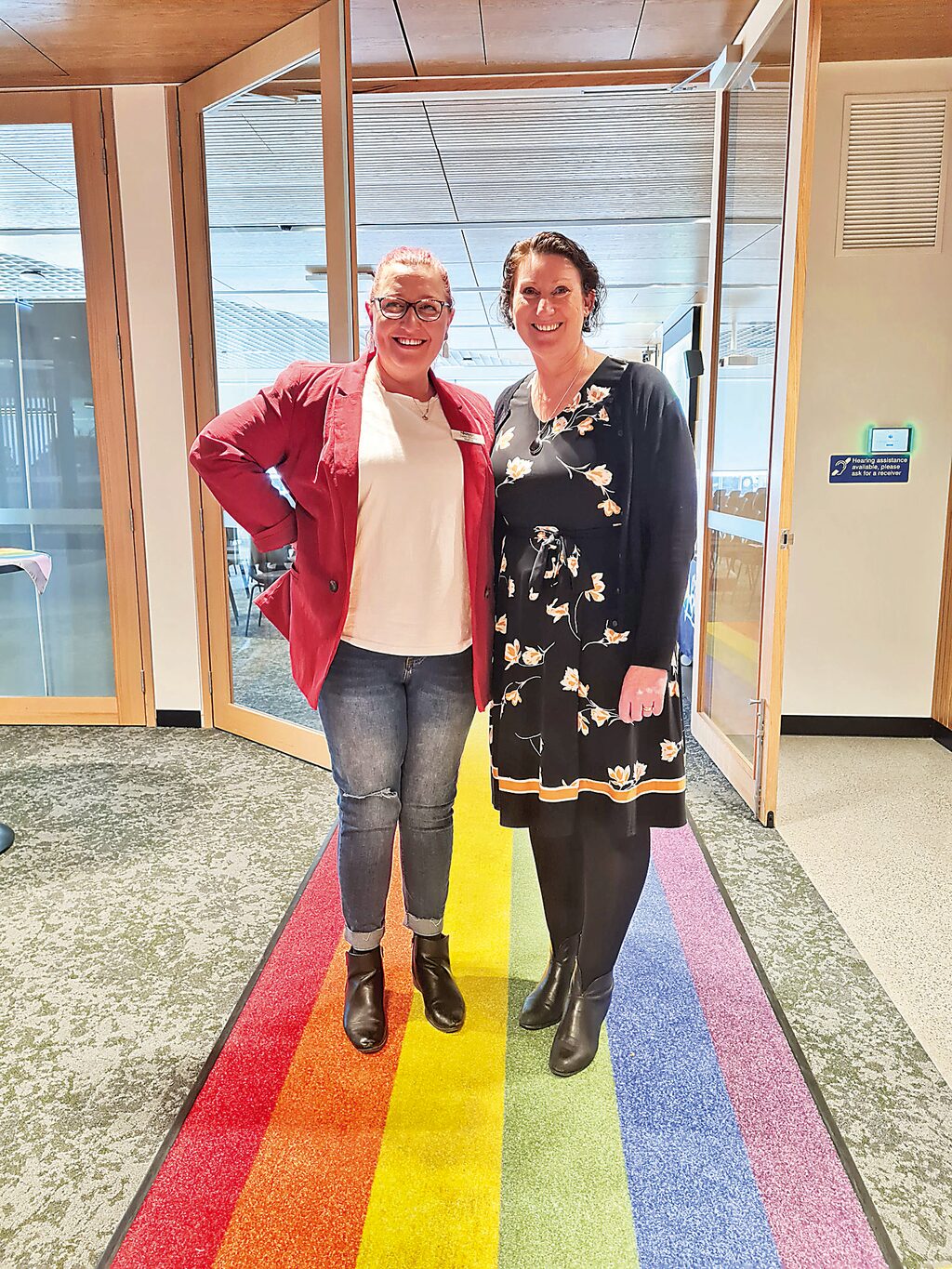
ZAIDA GLIBANOVIC
By ZAIDA GLIBANOVIC
THE first of its kind is what they’re calling the Rainbow Brick Road report, a survey capturing the lived experiences of the regional LGBTQIA+ community. Launched on International Day against Homophobia, Biphobia, Intersex Discrimination and Transphobia (IDAHAOBIT), the report is a ground-breaking regional project aiming to give voice to those often unheard. Gippsland Pride Initiative Co-founder Caitlin Grigsby hopes the report and its recommendations will be the start of a pathway to improve the experiences of the LGBTQIA+ community regionally. “This piece of work is, to our knowledge, a first-of-its-kind, region-specific assessment of LGBTQIA+ experiences in Australia,” she said. “It is our hope and intention that this work results in region-specific and community-informed action to more effectively bridge the gaps and contribute to a fulfilling, equitable and enriching lived experience for LGBTQIA+ Gippslanders.” The Gippsland Rainbow Brick Road project was created by the Gippsland Pride Initiative, which developed the community survey and ran a series of professional development workshops across all six shires of Gippsland on the experiences of the LGBTQIA+ community. The report was released at the Morwell Innovation breakfast last Wednesday morning. “The Morwell innovation breakfast generally is attended by local industry leaders, local government leaders, council leaders and local government, funding bodies and departments, but what was extraordinary was the diversity in the room. You had your youth spaces and people from all of the shires, volunteers, teachers and even power station executives were all in the room and supporting us and cheering us on,” said Ms Grigsby. The report’s key recommendations saw a need to increase mental health services and inclusivity training in health settings and educational institutions. The report also found the need to develop a support network and an up-to-date directory of local LGBTQIA+ services, among other initiatives. At the workshop 119 people attended, while a total of 184 surveys from LGBTQIA+ Gippslanders were analysed. Almost half of the participants (47.8 per cent) identified as homosexual, with others identifying as pansexual, asexual, bisexual, heterosexual, or other. Five people identified as being of Aboriginal or Torres Strait Islander descent. The participants in the survey were mostly aged between 22-54 years of age. Data collected from the 184 surveys and workshops were analysed by Federation University’s Collaborative Evaluation and Research Group. The survey focused on areas of the workplace, family, education, healthcare, community groups and sporting clubs. The survey’s findings found: – In the workplace, 58 per cent of participants had not experienced harassment or harm, but almost half of the participants had heard damaging or offensive statements or were exposed to subtle forms of harassment at work; – More than 67 per cent of the survey had concerns or serious concerns for their mental health, and 45 per cent could not access mental health support in their immediate location, and; – Over 70 per cent of respondents had considered self-harm or suicide in their lifetime, with only half reporting that they felt their concerns weren’t treated seriously. Results from the survey showed that education and time were critical factors in gaining understanding and support from family and friends. When participants recalled their time at school, 45 per cent felt they were not supported to be their whole selves; however, many participants have reported a positive generational change. Those participants involved with sporting clubs found them to be supportive and actively promoted LGBTQIA+ policies. However, only 30 participants responded that they were actively engaged in sports. “People that have joined a sporting club that is inclusive are having an excellent experience like roller derby, but we also know the response rate to those participating in sport is still incredibly low,” said Ms Grigsby. More than half the participants did not believe there were enough safe and accessible spaces for the LGBTQIA+ community, but despite this, the majority did feel supported by the community groups they were involved with. Federation University’s Collaborative Evaluation Research Group Director, Professor Joanne Porter said the Rainbow Brick Report will make waves for change. “The Rainbow Brick Report will help inform real change in the education, health and community services sectors across Gippsland,” she said. “It was our job to showcase the voices and experiences of the LGBTQIA+ community in order to provide organisations and agencies with the necessary evidence towards improving services and support in Gippsland.” Latrobe City Council have already committed to having council officers review the Rainbow Brick Road’s report and recommendations for the council’s information alongside an overview of the state government’s whole-of-government LGBTIQ+ strategy ‘Pride in our Future: Victoria’s LGBTIQ+ strategy 2022-32’. In a press release, Latrobe City Council said they “recognise that transgender and gender diverse people continue to face significant barriers and challenges. We remain committed to continuing to work together to ensure a community free from discrimination, harassment, and violence”. In light of the ground-breaking Rainbow Brick Road Report, Aussie Broadband, the Gippsland-based Internet service provider and its Managing Director, Phillip Britt, announced a combined donation of $50,000 to the Gippsland Pride Initiative. “As a member of that community and as someone who has experienced those challenges first-hand, Gippsland Pride’s work is critical,” said Mr Britt, who personally donated $25,000 to the cause. “The donations that Aussie Broadband and I have made will allow Gippsland Pride to move from their total volunteer base to having the support of a dedicated staff member to further their work,” said Mr Britt. Ms Grigsby said from Aussie Broadband’s donation, The Gippsland Pride initiative could branch out and find other funding and resources and remain very thankful for Aussie Broadbent and Vic.Tas for their support and funding. In other unrelated research, Gippsland Primary Health Network released a new priority issue paper and found that financial security, employment and a healthy environment all impact on the mental health and wellbeing of people in Gippsland, especially the LGBTQIA+ community. The study emphasises that LGBTQIA+ individuals are more likely to endure stigma and prejudice, are more likely to have poor mental health and suicidal conduct, and require enhanced and safe access to suitable services with a well-trained team. The LGBTQIA+ groups are extremely varied, with some bearing an even larger burden, such as Aboriginal and/or Torres Strait Islander peoples, trans and gender variant people (particularly young trans individuals), and people with an intersex variation. In 2022, the Gippsland Pride Initiative launched the Rainbow Brick Road Project. The project was a large-scale survey of the region’s LGBTQIA+ people to better understand the community’s needs, the urgency of support required and to collect the data necessary to better allocate resources and funding to these communities. Now that report has been released, Gippsland Pride will work closely will community groups, businesses and local councils in the hope that everyone takes the opportunity to take on the recommendation to improve the outcomes for the LGBTQIA+ community across Gippsland.











